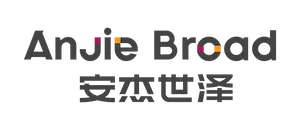On December 30, 2022, the Supreme People's Court of the People's Republic of China ("SPC") released its 36th batch of six guiding cases, all of which relate to the judicial review of arbitration awards. Our previous article focused on the first three guiding cases (Guiding Cases 196, 197, and 198) which addressed several critical issues related to arbitration agreements. This article elaborates on the context and pivotal holdings of the three remaining cases—Guiding Case 199, 200 and 201.
Guiding Case 199: Public Interest Related to Cryptocurrency
Guiding Case 199 (Gao Zheyu v. Shenzhen YunSilk Road Innovation Development Co. Ltd and Li Bin) – recognized1 as the first Chinese case concerning setting aside of an arbitral award involving bitcoins – is one of the rare cases in recent years where Chinese courts have invoked the concept of "public interest" to annul an award.
China's strict regulatory stance towards cryptocurrency stands in contrast to the broader recognition of cryptocurrency in a few neighboring jurisdictions (e.g., Hong Kong2 and Singapore3 ). Back in 2017, seven Chinese authorities (including the People's Bank of China and the China Securities Regulatory Commission) jointly issued the Announcement on Preventing the Financing Risks on Initial Coin Offerings4. Article 3 of the Announcement strictly prohibits any financial institution operating in China from offering cryptocurrency-related services, including pricing, intermediation or engaging in the buying or selling of cryptocurrency.
The arbitral award, which was set aside by the court, mandated that the respondent compensate the claimant a certain amount of Chinese Yuan equivalent to the bitcoins owed by the respondent to the claimant. In determining the value of the bitcoins, the tribunal referred to the bitcoin price provided on the Okcoin5 website. This award, which sparked intense debate, was eventually set aside by the Shenzhen Intermediate People's Court on the ground that it, in effect, facilitated the exchange between the bitcoin and fiat currency, resulting in the violation of the stability and integrity of the Chinese financial market and public interest.
This guiding case, without doubt, conveys a clear message of Chinese courts' stance on implementing stringent supervision over cryptocurrencies. However, taking a step back, if the award merely required the respondent to compensate the claimant with a certain number of bitcoins or allowed the value of the bitcoins to be determined through parties' negotiation instead of by reference to the price from a third-party website, would such award be enforceable? In the authors' view, that remains an open question. As a case in point, in Sun Dingshang v. Xie Zuozheng6, the court confirmed the validity of directly returning the bitcoins; and in a case shared by the Shanghai High Court7, the plaintiff, through negotiations between the parties, waived the request for the defendant to return one bitcoin and instead agreed to receive a certain amount of Chinese Yuan as compensation.
Thus, while the guiding case is consistent with China's regulatory bottom line for cryptocurrency-related issues, the extent to which courts will tolerate similar arbitral awards remains to be elucidated through future cases.
Guiding Case 200: Proactive Attitude in Harmonizing Expedited Arbitration and Ad Hoc Arbitration
Guiding case 200 (SvenskHonungsfora--dlingAB v. Nanjing Changli Bees Product Co. Ltd) reflects Chinese court's consistent pro-enforcement stance towards foreign arbitration awards adjudicated in the way of ad hoc arbitrations.
As a general matter, ad hoc arbitrations are not recognized under the PRC Arbitration Law, which requires that an effective arbitration clause must designate a specific arbitration commission. The key issue before the Nanjing Intermediate People's Court was whether, notwithstanding this provision, a foreign ad hoc arbitration initiated by the parties was in conformity with the parties' dispute resolution clause that "in case of disputes governed by Swedish law and that disputes should be settled by Expedited Arbitration in Sweden." The court found that ad hoc arbitration and expedited arbitration share the features of efficiency, convenience and economy, and are both focused on simplifying arbitration procedures, shortening arbitration time and reducing arbitration costs. Based on the above reasons, the court held that the term of expedited arbitration in the dispute resolution clause does not exclude resorting to ad hoc arbitration to solve the parties' dispute.
It is noteworthy to consider, alongside Guiding Case 200, the development of ad hoc arbitration in China. Early in 2016, the SPC has officially opened the door for companies registered in free trade zones ("FTZs") to submit their disputes to ad hoc arbitrations.8 However, it was not until 30 June 2023 that the first ad hoc arbitration award in China was adjudicated based on the ad hoc arbitration rules of China Maritime Law Association9, with the institutional assistance of the China Maritime Arbitration Commission. Another significant milestone in the development of ad hoc arbitration in China was the release of the Notice Regarding Requesting Public Comments on the Bills to Revise the Arbitration Law (Exposure Draft)10 in 2021. According to Article 91 of the Exposure Draft, parties are entitled to refer foreign-related commercial disputes to an ad hoc arbitral tribunal. Whilst not applicable to domestic cases and confined to commercial disputes, this proposed change is a step forward for China to further align with the international arbitration practice.
In sum, the pro-enforcement attitude towards foreign awards issued in ad hoc arbitrations, positive attempts of applying ad hoc arbitrations in FTZs, and the latest amendments in the Exposure Draft all signify China's readiness to take steady steps to modify its arbitration laws and regime to align with international practice. Whether ad hoc arbitration, as a relatively new concept in China, can effectively serve its function and flourish in China remains to be observed.
Guiding Case 201: Clarifying the Concept of "Sports Arbitration" in China
Guiding Case 201 arose out of a Professional Coach Contract signed between a Serbian coach and a Chinese football club. The Chinese football club was required to pay the outstanding wages to the coach pursuant to an award rendered by FIFA Players' Status Committee ("FPSC")—an internal dispute resolution body in the football field. Due to respondent's non-fulfillment of the award, claimant brought this award to Chinese local court for enforcement based on the New York Convention.
During the trial, the Shanghai First Intermediate People's Court was faced with two major issues—(1) whether the award rendered by FPSC counts as an arbitral award under New York Convention; and (2) whether the arbitration clause—"In the case of disputes over which FIFA does not have jurisdiction, the parties shall submit such disputes to the CAS"—excludes the court's jurisdiction over the current case.
Regarding the first issue, the court held that because FPSC is a self-governing internal dispute resolution body with the enforcement of the award primarily relying on the self-governing mechanism within the football industry—instead of an independent arbitral institution—the award does not possess binding force. Moreover, the award issued by FPSC is not final because such award does not preclude the parties from seeking recourse to the local court or CAS. In light of the above reasons, the court ruled that the award rendered by FPSC does not fall within the definition of an "arbitral award" under the New York Convention. From the court's reasoning, it can be observed that Chinese courts typically place significant weight on the criteria of "Independence," "Binding Force," and "Finality" when interpreting the term "arbitral award" in the context of the New York Convention.
Regarding the effect of the arbitration clause in the contract, the court took a two-step approach. After confirming the validity of the arbitration clause, the court elaborated that as the pre-condition of initiating CAS arbitration was not satisfied, i.e., because FIFA had exercised its jurisdiction over the dispute, the clause was rendered unenforceable. Based on this, the court ruled that an unenforceable arbitration clause could not exclude the court's jurisdiction.
An interesting hypothetical question arising from this case is whether, in the event that the dispute is submitted to CAS and an award is rendered by a CAS tribunal, such award would be recognized as an "arbitral award" under the New York Convention. Given that CAS, as a sports arbitral institution, deals with a wide range of disputes covering not only commercial issues but also areas like sponsorship and doping, the authors' opinion is that Chinese court's stance regarding CAS awards would remain ambiguous. And this ambiguity is further compounded by China's declaration of "Commercial Reservation" when ratifying the New York Convention.
Concluding Thoughts
The 36th batch of six guiding cases clarifies multiple significant issues concerning both domestic and international arbitration in China. At the same time, considering the ongoing substantial revision of the PRC Arbitration Law, there is much anticipation for the future arbitration practice within this regime.
Note:
1. https://www.bjac.org.cn/news/view?id=4068
2. For example, in the landmark decision of Re Gatecoin Limited (In Liquidation) [2023] HKCFI 914 issued this year, the Court of First Instance of Hong Kong, for the first time. held that cryptocurrency constitutes property under Hong Kong Law.
3. For example, under the Payment Services Act 2019 of Singapore, cryptocurrencies are considered digital payment tokens regulated by the Monetary Authority of Singapore. The Monetary Authority of Singapore states that the Payment Services Act 2019 "provides for regulatory certainty and consumer safeguards, while encouraging innovation and growth of payment services and FinTech."
4. https://www.gov.cn/xinwen/2017-09/04/content_5222657.htm
7. https://mp.weixin.qq.com/s/4KH68E0MVhxjgyeWgJAHOA
8. https://cicc.court.gov.cn/html/1/218/62/409/410.html
9. https://cmac.org.cn/data/upload/image/20220318/1647588189657054.pdf
10. http://www.moj.gov.cn/pub/sfbgw/lfyjzj/lflfyjzj/202107/t20210730_432967.html
*This article was originally published on the Kluwer Arbitration Blog and unauthorized reproduction is prohibited.
The content of this article is intended to provide a general guide to the subject matter. Specialist advice should be sought about your specific circumstances.

